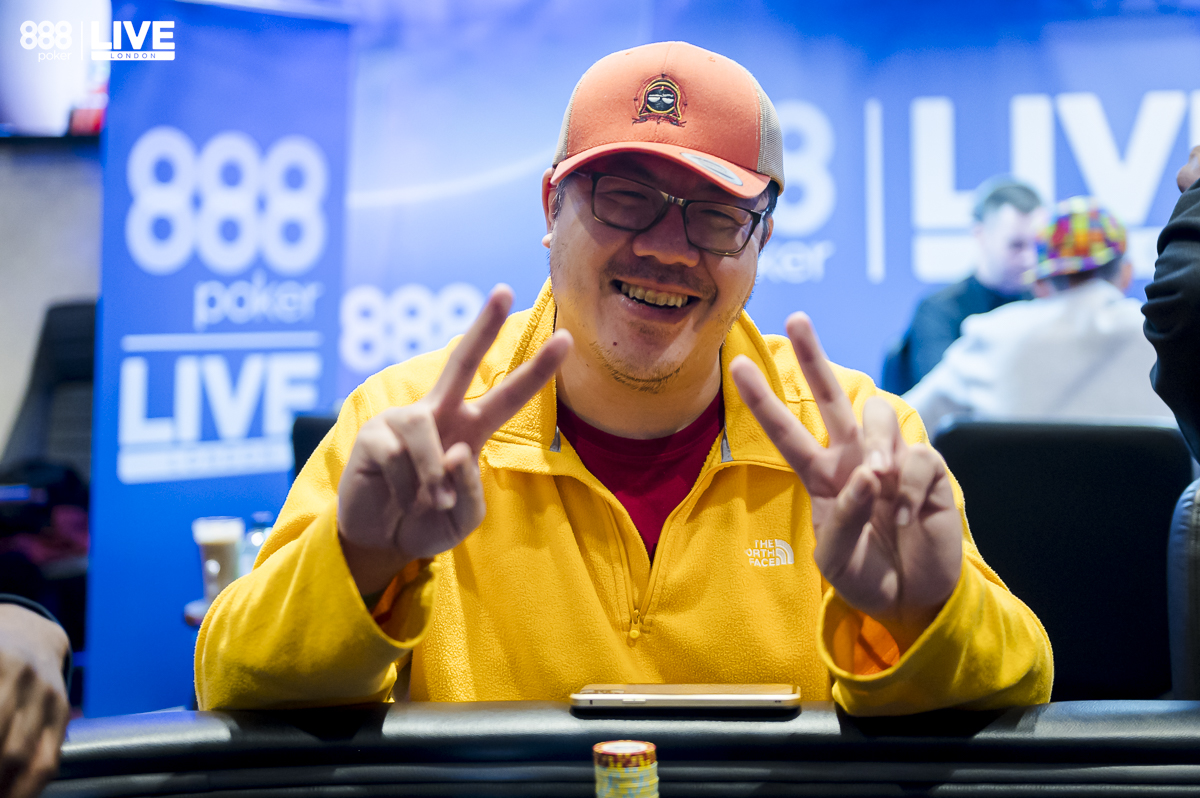Even brand-new players recognise that poker is a fast-paced and mentally demanding game. Players are not only challenged by the mathematical and strategic aspects but also by the psychological and emotional elements.
There is one crucial psychological tool that can significantly impact a player's performance, and that is self-talk.
- Self-talk refers to the internal dialogue we all have that goes constantly.
- We become what we think about the most.
- This internal dialogue forms the bulk of our thoughts.
Here are a few fun facts about the internal dialogue likely happening in your head:
- Did you know that the average person has heard the word “no” 148,000 times by the time they’re 18 years old?
- Or that psychology research shows that about 80% of our daily thoughts are negative?
We are all programmed to think in patently negative ways. We are constantly told what we cannot do from our earliest ages. So, it isn't long until we adopt this thinking wholeheartedly and start telling ourselves what we cannot do!
Take a moment and think about what you say to yourself at the poker table.
- Is it overwhelmingly positive (e.g., you've got this! I'm focused and in the zone!)
- Or is it overwhelmingly negative (e.g., I'm such an idiot! I'll never move up stakes at this rate!)?

Upon reflection, you'll become aware that much of what you say to yourself at the table is negative. This article aims to shed light on how your internal dialogue can shape your thoughts, emotions, and actions at the table.
Gaining a better understanding of the significance of self-talk can help you develop a more constructive and empowering mindset. This frame of mind will improve your decision-making and increase emotional control and overall performance.
Once you recognise the power of self-talk and its potential influence on your gameplay, you can proactively develop strategies to cultivate positive self-talk patterns.
Overcome negative self-talk to optimise your mental game.
So, let's get into the tools and insights you can immediately put into action!
The Different Types of Self-Talk
Self-talk refers to the internal dialogue or thoughts of individuals. It encompasses the beliefs, affirmations, and statements that players consciously or unconsciously use within to communicate during play.

We make three types of statements to ourselves while playing: positive, negative, or neutral:
- Positive self-talk: Positive self-talk uses optimistic and empowering statements that build confidence, promote resilience. It enhances your overall mindset.
Examples of positive self-talk in poker include words like:
- "I am a skilled player."
- "I trust my instincts."
- "I make smart decisions."
- Negative self-talk: Negative self-talk refers to internal dialogue that is critical, self-deprecating, or self-doubting. Negative self-talk can undermine confidence, increase anxiety, and contribute to a self-fulfilling prophecy of failure.
Examples of negative self-talk include statements like:
- "My aces always get cracked."
- "I never get good hands."
- "I'm just unlucky."
- Neutral self-talk: Neutral self-talk maintains a balanced and objective internal dialogue without adding excessive judgment or emotion. It can help you stay focused, make rational decisions, and avoid unnecessary distractions.
Neutral self-talk may include statements like:
- "I need to analyse this spot objectively."
- "Stay calm and make a good decision."
- "Focus on the present moment."
How Self-Talk Shapes Thoughts, Emotions, and Behaviours

Dr Shad Helmstetter is a leading researcher and educator on self-talk. He says that your success or failure in anything (including poker) will depend on your programming –
- What you accept from others
- And what you say when you talk to yourself.
As he explains it in his book What to Say When You Talk to Yourself:
"Every thought we think, every conscious or unconscious thought we say to ourselves, is translated into electrical impulses which, in turn, direct the control centres in our brains to electrically and chemically affect and control every motion, every feeling, every action we take every moment of every day."
Your thoughts affect, direct, and control everything about you!
Let's consider how self-talk shapes your thoughts, emotions, and actions at the table.
- Thoughts: Self-talk influences how you interpret situations, assess risks, and make decisions. Positive self-talk can enhance confidence and promote optimism. It encourages you to trust your skills and judgment. Negative self-talk can lead to self-doubt, pessimism, and distorted thinking patterns. These issues hinder effective decision-making.
- Emotions: Self-talk directly affects your emotional state. Positive self-talk can generate feelings of confidence, motivation, and calmness. Use these feelings to help you handle wins and losses with resilience. Negative self-talk can amplify anxiety, frustration, and tilt. These factors lead to impulsive decisions and emotional reactions, negatively impacting your results.
- Actions: The self-talk you engage in can influence your actions and behaviours at the table. Positive self-talk can encourage calculated risk-taking, assertiveness, and a proactive/aggressive playing style. Conversely, negative self-talk can lead to cautious and timid play, fear of making mistakes, and missed.
The type of self-talk you use can directly impact the quality of your actions and the results you achieve.

Helmstetter goes further, saying that our mental programming sets up our beliefs. This mental state sets off a chain reaction where our beliefs create attitudes that create feelings.
Our feelings determine our actions, ultimately creating our results.
So, to manage your emotions more effectively, you must change your mental programming.
What's the easiest way to modify your programming?
Change the way you talk to yourself!
Practical Tips for Incorporating Positive Self-Talk
Use affirmations: Create a list of positive affirmations that align with your poker goals and strengths. "I'm calm and focused at the table" or "I never let my emotions work against me" can work well.
Repeat these affirmations regularly to reinforce these new positive thinking patterns. You should do this, especially before a session or during breaks.
Celebrate successes: Acknowledge and celebrate your achievements, both big and small. Reflecting on past wins can boost confidence and remind you of your capabilities.
Focus on learning: Focus on continuous growth and improvement rather than immediate results. Remember that each hand or session is an opportunity to learn and develop your skills.
Visualise success:
- Imagine making successful plays, winning pots, and staying composed even when things go wrong.
- Imagine yourself as a solution-focused problem solver.
- Get as detailed as you can when seeing yourself doing these things.
Visualisation enhances confidence and acts as a mental rehearsal for positive outcomes.
Surround yourself with positivity: Seek out supportive and encouraging individuals within the poker community. Engage in positive discussions, share success stories, and exchange tips for maintaining a positive mindset.
Spending much time discussing bad beats is not a path to positive self-talk!
Practice gratitude: Gratitude is a powerful mental game strength. Cultivate an attitude of gratitude by acknowledging the positive aspects of your poker journey. Expressing gratitude for the opportunity to play and grow as a player can foster a positive mindset.
Remember, overcoming all the negative mental programming you've encountered thus far can take a great deal of time and effort. Incorporating positive self-talk into your poker routine requires consistency and intention.
But suppose you consciously direct your internal dialogue towards positivity?
You can harness its benefits to boost confidence, manage emotions, improve decision-making, and enhance your poker performance.


